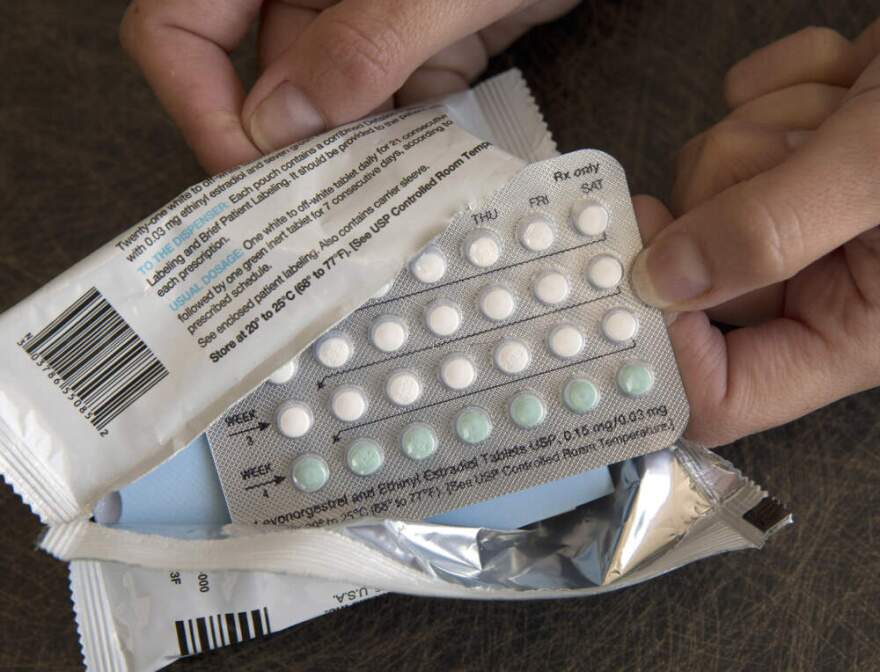Listen to the article
Rising tide of anti-birth control content on social media has medical professionals concerned about misinformation and its potential health impacts, experts say.
Social media platforms are witnessing a surge in posts urging women to stop using traditional oral contraceptives. The trend is gaining momentum through influencers promoting hashtags like #stopthepill, #hormonefree, and #naturalbirthcontrol, raising alarms among healthcare professionals.
Various public figures have fueled this movement with controversial statements. The late Charlie Kirk claimed birth control “creates very angry and bitter young ladies.” Social media personality Liz Tenuto, known as The Workout Witch, described birth control as “one of the most damaging things you can put in your body.” Casey Means, President Trump’s attorney general nominee, told Tucker Carlson that contraceptives are “literally shutting down the hormones in the female body that create this cyclical, life-giving nature of women.”
These claims come despite approximately 65% of women ages 15 to 49 using some form of contraception in the United States. The anti-birth control movement has found common ground with the growing pronatalist movement, which advocates for increased birth rates.
Dr. Jessica Shepherd, an obstetrician, gynecologist, and sexual health educator, firmly rejects these claims as misinformation. “What we do know is the safety and efficacy of birth control pills,” Shepherd stated. “Its improved safety has also been established because we’ve had reiterations of it and different combinations of it.”
While acknowledging that some individuals choose to avoid birth control due to side effects, Shepherd emphasized this is not typical. She addressed one common misconception she encounters in her practice—the false belief that oral contraceptives cause infertility.
“Everyone born with a uterus has a finite number of eggs in their ovaries,” Shepherd explained. “Those are going to be there whether we use birth control or not. Long-term use, or even short-term use of the birth control pill, does not contribute to infertility because we all have the amount of eggs that we will ever have, and birth control pills do not take away the amount of follicles that the ovary contains.”
Another claim circulating on social media suggests birth control pills lead to suicidal ideation. Shepherd noted that while strong data linking oral contraceptives to suicidal thoughts is lacking, some women do experience increased depression when using hormonal contraceptives.
“That’s because of the estrogen and progesterone present in hormonal birth control pills,” she explained. These hormones can interact with neurotransmitters like serotonin or dopamine, potentially causing mood changes. “If you’ve had a history of depression or you have persistent sadness or mood changes,” Shepherd cautioned, “these are the people that shouldn’t be counseled necessarily to take a birth control pill.”
Shepherd emphasized that hormonal contraceptives offer significant benefits beyond preventing pregnancy. They can improve skin conditions by clearing acne and help those with premenstrual dysphoric disorder or premenstrual syndrome by stabilizing hormone levels to reduce symptoms.
For women considering stopping birth control, Shepherd strongly recommends doing so under medical supervision. “I’ve had many patients who had bleeding issues or pain issues in the pelvis that were alleviated by birth control. And so coming off of that, they had resumption of bleeding, which can be catastrophic,” she warned.
Some anti-birth control advocates promote fertility tracking apps as natural alternatives to hormonal contraception. Shepherd acknowledges that such technology, when used mindfully, can be valuable and even complementary to hormonal methods. “Using apps and also algorithms that don’t use hormones are brilliant ways to actually look at the contraceptive journey for any woman,” she said.
Despite seeing potential benefits in certain technological approaches to fertility awareness, Shepherd views the broader anti-birth control movement with concern. “It really upsets me when I hear these claims,” she said, “because women believe it.”
As the debate continues on social media, medical professionals urge women to consult healthcare providers rather than influencers for contraceptive decisions, highlighting the importance of individualized care based on medical history and personal health needs.
Verify This Yourself
Use these professional tools to fact-check and investigate claims independently
Reverse Image Search
Check if this image has been used elsewhere or in different contexts
Ask Our AI About This Claim
Get instant answers with web-powered AI analysis
Related Fact-Checks
See what other fact-checkers have said about similar claims
Want More Verification Tools?
Access our full suite of professional disinformation monitoring and investigation tools



